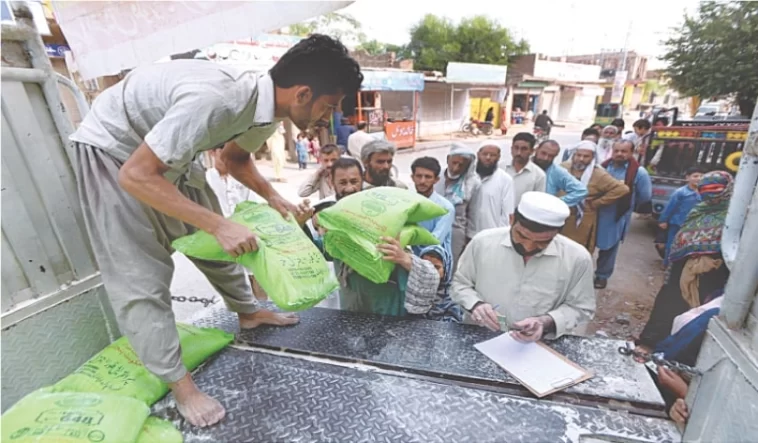Meanwhile, some individuals are allegedly purchasing 40 kg of subsidised wheat flour for Rs. 2,300 and reselling it for up to Rs. 4,300. There is a shortage of 10-kilogram bags, which are now priced at Rs. 648, due to the rising demand for subsidised flour.
While the market price of whole wheat flour has increased to a new high of Rs. 165 per kg, a 15 kg bag of privately made flour costs between Rs. 1,800 and 1,850.
Despite 23,000 metric tonnes of wheat being delivered daily from government storage, locals have trouble getting any discounted flour at all.
According to reports, the Punjab Food Department claims to provide 500,000 bags of subsidised flour each day, but it is believed that some of the wheat has been stolen, leading to long lines at government flour selling points and worries from the people who have to endure them in order to buy the affordable flour.
The federal government has guaranteed supply, and the department has requested 2.5 million additional tonnes of wheat. However, the import process might take up to 45 days.
Muhammad Zaman Wattoo, the Punjab’s food secretary, acknowledged the suffering of the populace and declared that he was striving to find a solution. He has set up specialised teams to prevent the smuggling of wheat flour and has made sure that dishonest employees are not employed by the department.
In order to prevent corruption, he has also oversaw a review of the electrical bills for wheat mills and will validate milling and power use.
The secretary has mandated that the wheat quota be made accessible to the public on a website in order to encourage transparency. In order to help stop government subsidy fraud, people can look up the existence of wheat mills in their area and certify that they are in operation.


